Interview with Timcho Apostolov, editor of the monograph "Pride of Kavadarci" - A different monument to successful Kavadarci citizens
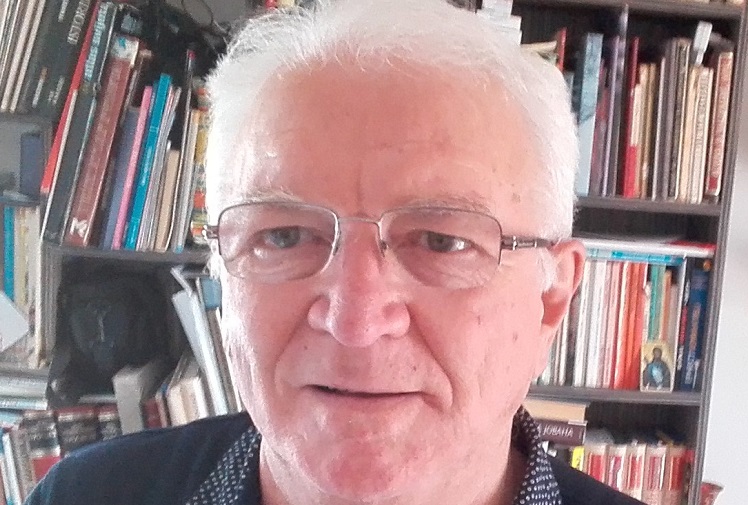
Journalism still lies in the heart of Timcho Apostolov, although he has been retired for many years. He used to express his great love for the profession with impeccable expression and honest attitude towards the readers of the former screen "Ekran", where he was first a journalist, and then editor-in-chief. After the show went out, Apostolov dedicated the third age in his life to his hometown, preparing a representative monograph with prominent personalities from Kavadarci. Former journalist and editor-in-chief of the former Ekran magazine, Timcho Apostolov, has spent almost two years of his life preparing a monograph on people from his hometown of Kavadarci.
In the monograph "Pride of Kavadarci" on about 400 pages are presented portrait stories of more than 140 individuals, institutions and companies, who with their work and works have attracted the attention of the public. She reveals that the Municipality of Kavadarci is a nursery of successful businessmen, athletes, painters, musicians and singers, prominent socio-political figures, professors, scientists and innovators, who with their works have attracted the attention not only of the Macedonian professional public, but also of eminent institutions and individuals from the Balkans and Europe. The monograph is an attempt to present the work and works of successful people from Kavadarci in one place. This is the first such attempt in Macedonia, in a monograph, to present the life and works of a representative selection of successful citizens from one municipality. The publisher of the monograph is the House of Culture "Ivan Mazov - Klime" in Kavadarci, and the computer preparation and design are by Goran Jovanov from "Royal Art".
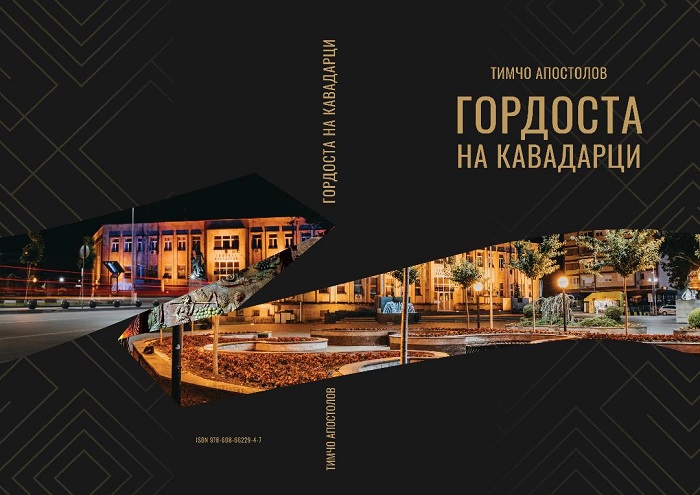
How did you manage to prepare the extensive and luxuriously equipped monograph "The Pride of Kavadarci"?
- Often we, the people of Kavadarci who live in Skopje, at the sessions were reminded of certain people and often clashed with names we do not know. That made me start researching and it lasted about two years. As an old man from Kavadarci, I thought that I knew all the famous and important people born in Kavadarci, but it turned out that it was not so. I myself was pleasantly surprised by the results of the research. I found out that many people from Kavadarci became deans, successful businessmen, scientists whose scientific works received significant recognition at world symposia and that was the basic idea to undertake to make a monograph of famous and successful people from Kavadarci. The idea for the monograph "Pride of Kavadarci" is to be a different monument, a testimony that will make an attempt to forget the successful citizens and companies of the Municipality of Kavadarci, whether today they live in their hometown or elsewhere.
How many biographies did you manage to place on about 400 pages, as many as there are monographs?
- With the research I processed about 140 portrait-stories, which I named so, because these are not telegraphic biographies of the persons, but I tried to find out more about the person for whom I am making the portrait. There is information about the family of the person, about his beginnings with the activity, about the results he has achieved in the field in which he works. However, I had a problem with the data of people who died, for whom I thought I would find data very easily, and practice has shown that it does not exist. That is why I think that the process of digitization of biographical documents for famous Macedonian personalities should be accelerated so that their lives and works can more easily reach a wider circle of people through the new electronic technology.
How did you choose the people represented in the monograph, according to which criteria?
- As a journalist, I already had information about successful people born in Kavadarci. Secondly, my friends are many journalists, writers, professors, and in conversations with them, the list of people was determined. The basic criterion was, in addition to the personal success and education of the person, that she had higher socially recognized and recognized results or a state position that had a positive impact on the public. So, it was not enough for someone to just graduate from university, but with his education and success he managed to do for the good of society. I clung to the facts from the Chamber of Commerce with the businessmen and selected the twenty most successful companies from Kavadarci. I have been making portrait stories about them from their beginnings to the present day. Thus I discover that none of them's success fell from the sky, but all had a thorny path, and ups and downs, moments that made them give up their idea, but with a lot of perseverance and diligence managed to become what they are now.
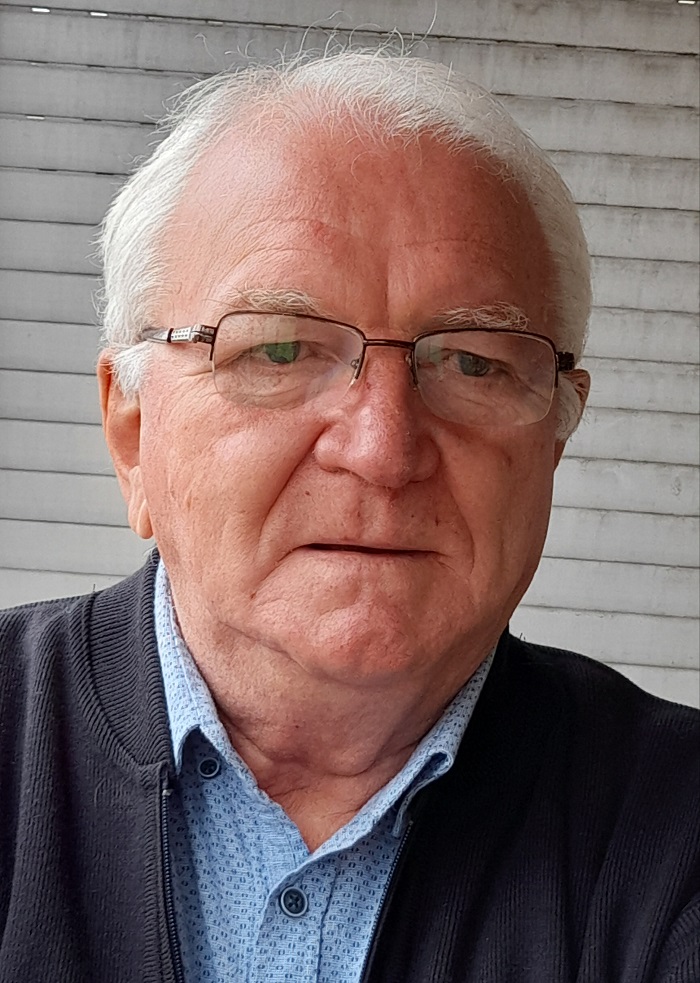
The monograph has been printed, but it has not been promoted and probably the people who are represented in it have not seen it yet, but how did they react when you approached them with the idea that you are making the book "The Pride of Kavadarci"?
- Most of them were delighted with the idea and wanted to cooperate and present to me the data needed for their biographies. Through conversation, they wanted to convey all my business successes. Practically, everyone had a positive opinion of the project and I had no problems in that regard.
How much did your journalistic background make the whole thing easier for you?
- The journalistic experience made my job easier because I knew what I wanted - I wanted to make a story, not an extended ID card. Where I knew people, it was very easy for me to compose the story. Problems arose with the deceased, and there I clung more to the known, but I also searched for unknown facts about the persons. There are such stories in the monograph from Turkish times, one is related to Atanas Azovski, who hid Mustafa Kemal Ataturk before the Young Turk Revolution, but also from the People's Liberation War with portrait stories of fighters from the Kavadarci region. The monograph also contains the biographies of all the mayors of Kavadarci, but also of many artists, painters, musicians, writers, journalists, athletes.
You have been involved in journalism all your life, from studying in Belgrade to working in the former NIP "Nova Makedonija", the magazine "Ekran", later the newspaper "Biznis" and all the time you live in Skopje. How did you get started in journalism?
- I went to Belgrade to study in 1966, at the Faculty of Electrical Engineering. There was only energy at the ETF in Skopje, and I wanted to study electronics, so I went to Belgrade. Trajche Mukaetov, who was a generation before me, probably had an influence on that, and he told me what life in Belgrade was like. Since I was still making wall newspapers and shows on Radio Kavadarci in Kavadarci, after the second year of studies in Belgrade, when my roommate was the writer Milislav Savic, I started writing for the Belgrade "Student". In 1973 I returned from my studies and immediately started working at "Ekran". I worked in "Ekran" from journalist to editor-in-chief, until the NIP failed.
Due to the Covid-19 pandemic, last year there were no conditions to mark 50 years of "Screen". The show no longer exists, but was there any initiative to celebrate the jubilee?
- We wanted and gathered with Slobodan Petrovi,, the first editor of "Ekran", and a team that worked in the show, but the pressure from the pandemic was great even then. And we wanted to make an exhibition of photos and texts, artists were ready to play something in honor of the jubilee, but we could not bring all those ideas.
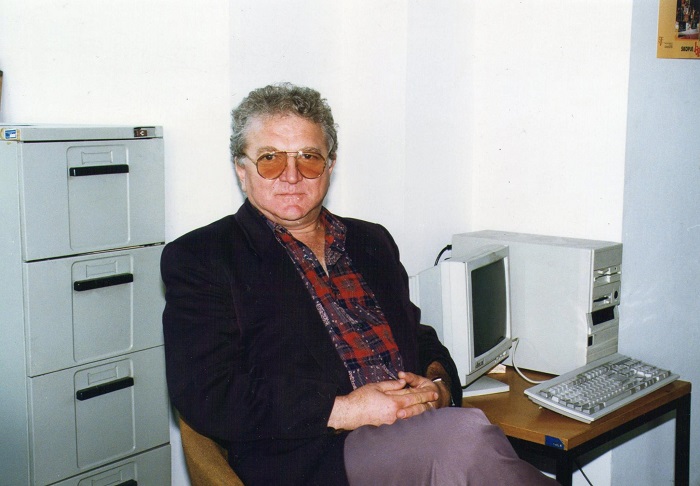
The "Ekran" show has been out for a long time, but how do you feel about that format of informing the public, because the print media have less and less future in the digital age?
- Then we had success because of the honesty and great love for the profession. I guess journalists still work like that today, although I'm not convinced. Then we worked 24 hours a day. There is an anecdote that says that a journalist at around 20 pm, after the publication of the daily edition, said: - Let's go home, and headed to the building of NIP "Nova Makedonija"!
"Ekran" was a family show. First it started as a supplement of "Nova Makedonija" for film, theater and television, then it separated and became an independent fashion show. We looked for information for all generations, from rock music for the youngest to texts for theater, television, movies. We followed both world and domestic productions. We watched every Macedonian film from the first klapa to the premiere. We watched every play from preparations to the premiere. We announced the concerts, followed them and evaluated them. We had reviews for every cultural event. I do not think that is the case today. Today we are going to unacceptable populism, in my opinion, starting from the photos that are published with the crotch of a famous star or host, to who was her lover, from whom she divorced and the like! We did not have such texts. We had controversial texts about the progress, or why there was stagnation in the Macedonian film, what should be done to improve the Macedonian music, the manipulations of the festivals and the like. I had a text after which the Skopje Festival of Fun Melodies was abolished, because I wrote that "out of 24 compositions, 18 lyrics are by Gjoko Georgiev, and 12 arrangements are by Aleksandar Dzambazov and Ljubomir Brangjolica, and all of them were employed by the then Radio Television Skopje". It was a scandal and the management canceled the festival. I was sorry, because that was not the intention, but the festival to exist and give a chance for affirmation to more composers, arrangers and songwriters. I want to say that then we had critical texts with facts. Regarding the theater, the "Actor of the Year" award given by "Ekran" at that time was more influential than the award for acting at the "Vojdan Chernodrinski" festival, because we awarded it based on theatrical and film reviews that indicated which actor or actress most deserved the award in the current year.
So at that time and in those conditions, journalism had the power to change the situation?
- We were trying to change them. Artists appreciated that too. We had reviewers for everything, for theater, film, music, concert, television, poetry, and for jazz music then we had Velibor Pedevski and Oliver Belopeta. Our intention was to affirm our values and to inform the readers about the top events in the areas that "Ekran" followed.
Are you upset when you watch news on TV today or read texts on portals?
- A lot! I can not understand how the journalist asks one question, the interlocutor answers something completely different and the journalist does not insist on answering the question he asked. Also, I can not understand how non-medical journalists interview infectologists, especially in these pandemic times. That is why there are cases when all journalists ask the same questions. Secondly, I am angry with their choice. Take a look at the TV diaries and you will see that they are all the same, with the same information, with the same remarks, with the same questions. There is no diversity, no different approach to a given topic. All electronic media look like a copy-paste to me.
The future of digital journalism is debatable, but what makes you proud of your journalistic time?
- I think that with all the disadvantages, in due time with the team that worked in "Ekran" we managed to make a fashion show that is still in the memories of many readers. Many people from the art world, looking at the situation with today's print and audiovisual media, say to me - why not renew the "Screen"? But the years have taken their toll. Almost my entire team is old, many of them retired. We made ours, and eventually some younger generations should make some renewal. It does not have to be "Screen". There are other ways and forms. But first, you have to have love and love the job.
The preparation of the book "Pride of Kavadarci" is an extensive project. Would you do something like that again?
- After I made the book, I additionally discover people who deserve it, and are not part of the content of the monograph. To avoid confusion, I want to explain that the book is not an encyclopedia of all successful people from Kavadarci, because then it should be even bigger. But I think that this book is a base that can be supplemented, regardless of whether I or someone else will do it, to get a more complete picture of the successful people from Kavadarci.
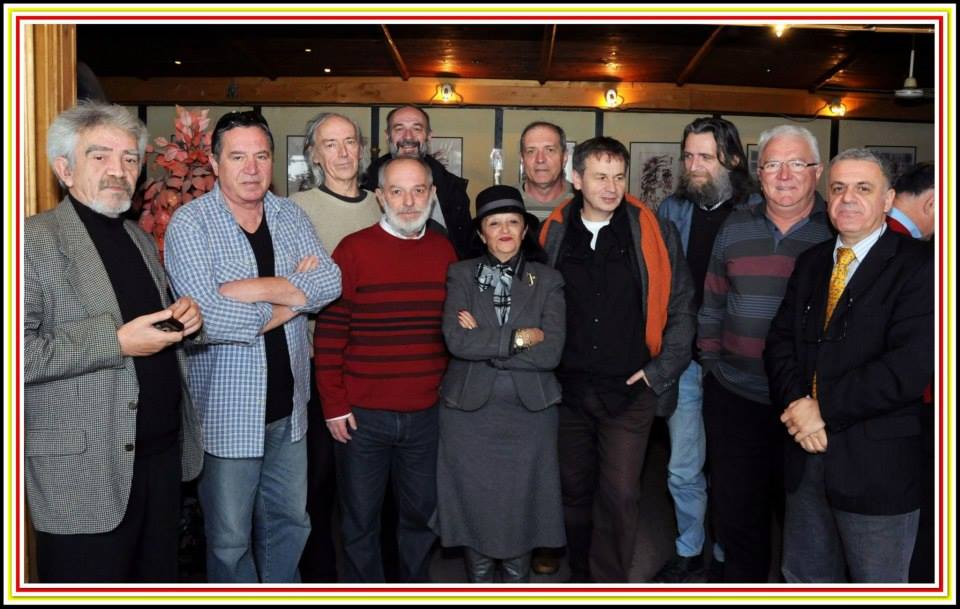
"Ekran" review - Editorial experience with many initiatives
Timcho Apostolov spends most of his journalistic career in "Ekran", first as a journalist, and then as the editor-in-chief of the show. During that period he initiated and together with the editorial office realized the manifestations "Pop-rock fest", "Choice of artist of the year", "Screen theater fest", "Choice of the best disc jockey", "Miss Macedonia", and the same as well as the first mass reception of the New 1990 on the City Square. The "Ekran" magazine had an average circulation of 40.000 to 60.000 copies sold, and one issue reached a record circulation of 105.000 copies. After "Ekran" was privatized, and soon after it expired, Apostolov worked as an editor, until his retirement, in the first daily economic newspaper "Biznis".
(The interview was published in "Cultural Press" No. 76, in the print edition of "Free Press" on April 10-11, 2021)


